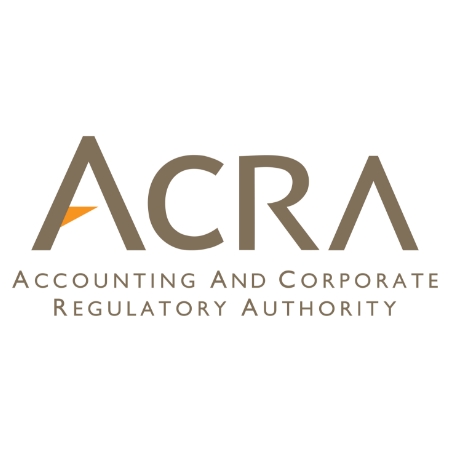
In the dynamic landscape of business operations, adhering to regulatory requirements is crucial for sustained success. Among these obligations, the timely filing of the ACRA annual return holds a special significance for businesses in Singapore. In this blog, we delve into the various advantages that come with punctual submission, shedding light on how this seemingly routine task can contribute significantly to a company’s prosperity.
Ensuring Legal Compliance
Filing the ACRA annual return within the stipulated timeframe is not merely a formality but a legal obligation. It guarantees that companies continue to abide by Singapore’s legal and regulatory requirements. If this isn’t done, there may be fines and legal repercussions, and in the worst situations, the company may dissolve. Businesses can build a strong foundation for long-term growth by demonstrating their commitment to operating within the law by submitting on time.
Maintaining Good Standing with ACRA
Timely submission of the annual return is a key factor in maintaining a positive relationship with the Accounting and Corporate Regulatory Authority (ACRA). A company that consistently meets its filing deadlines is more likely to be viewed favorably by regulatory bodies. This goodwill can be instrumental in various scenarios, from seeking regulatory approvals to building a positive corporate image that attracts investors and partners.
Availability of Financial Support and Incentives
Businesses may need to maintain good standing with regulatory agencies in order to be eligible for loans, grants, or other forms of financial aid from some financial institutions and governmental organizations. Timely ACRA annual return filing positions a company to avail itself of such opportunities, fostering financial stability and facilitating strategic initiatives for growth.
Enhancing Credibility and Investor Confidence
Investors and stakeholders place a premium on transparent and well-managed businesses. Timely filing of the annual return reflects a commitment to financial transparency and responsibility. This can bolster the credibility of a business, instilling confidence in existing stakeholders and attracting potential investors who seek assurance in the company’s commitment to regulatory compliance.
Efficient Corporate Governance
Filing the ACRA annual return on time is a hallmark of efficient corporate governance. It reflects a company’s ability to organize and manage its affairs in a systematic manner. This not only satisfies regulatory requirements but also sets the stage for effective decision-making, risk management, and overall operational excellence.
The ACRA annual return is a mandatory filing requirement for all companies registered in Singapore, as stipulated by the Companies Act. This annual return provides a snapshot of the company’s particulars at a specific date, including its registered office address, shareholders, directors, and company secretary. Here’s an overview of what the ACRA annual return entails:
1. Company Information:
- Registered Office Address: The current address where the company conducts its business and where official communications are sent.
- Principal Activities: A brief description of the company’s main business activities.
2. Financial Information:
- Financial Statements: While the annual return itself does not require financial statements, companies must ensure that their financial statements are updated and available for submission to ACRA upon request.
3. Shareholders’ Information:
- List of Shareholders: Details about the shareholders, including their names, addresses, and the number of shares they hold.
- Share Capital: Information about the company’s share capital, including the total number of shares authorized and issued.
4. Directors’ Information:
- List of Directors: Information about the company’s directors, including their names, addresses, and any changes in directorship during the financial year.
- Director’s Report: Though not part of the annual return, companies are required to prepare a director’s report that provides a comprehensive overview of the company’s performance and activities.
5. Company Secretary Information:
- Company Secretary Details: Information about the company secretary, including their name and address.
6. Date of Annual General Meeting (AGM):
- AGM Date: The annual return includes information about the date of the company’s Annual General Meeting, where directors present financial statements to shareholders.
7. Compliance Statement:
- Statement of Compliance: Companies need to confirm their compliance with the requirements of the Companies Act.
Filing Deadline: The annual return must be filed with ACRA within one month of the company’s Annual General Meeting or six months from the end of the company’s financial year, whichever is earlier. Even if a company has not held an AGM, the annual return must still be filed within six months of the financial year-end.
Penalties for Non-compliance: Failure to file the ACRA annual return on time can result in penalties, and repeated non-compliance may lead to legal consequences, including the striking off of the company from the register. Therefore, timely and accurate submission of the ACRA annual return is essential for maintaining regulatory compliance and the good standing of the company in Singapore.
Filing the ACRA annual return is a crucial responsibility for businesses in Singapore. However, several common mistakes can occur during the filing process. Here are some common mistakes to be mindful of:
- Missing the Filing Deadline: One of the most critical mistakes is failing to file the ACRA annual return within the stipulated timeframe. Missing the deadline can result in financial penalties and, in severe cases, the striking off of the company from the register. It’s essential to be aware of the filing due dates and plan accordingly to submit the annual return on time.
- Inaccurate Company Information: Providing incorrect or outdated company information is a common error. This includes details such as the registered office address, principal activities, and particulars of directors and shareholders. It’s crucial to review and update this information regularly to ensure accuracy.
- Incomplete Shareholders’ and Directors’ Details: Failing to provide comprehensive information about shareholders and directors is a common mistake. Ensure that all required details, including names, addresses, and the number of shares held, are accurately reported. Any changes in directorship during the financial year should be promptly updated.
- Neglecting to Update Financial Statements: While the ACRA annual return itself doesn’t require financial statements, companies must keep their financial records updated and available for submission upon request. Neglecting to maintain accurate financial records can lead to complications during audits or investigations.
Partnering with BoardRoom provides businesses with comprehensive corporate solutions, leveraging their expertise in governance, compliance, and company secretarial services. This collaboration ensures streamlined and efficient management of regulatory requirements, allowing companies to focus on their core operations with confidence.
Final Thoughts The benefits of timely ACRA annual return filing extend far beyond mere regulatory compliance. Businesses that prioritize and consistently meet these deadlines position themselves for success in the broader business landscape. From legal compliance to enhanced credibility and access to financial incentives, the advantages are manifold. As businesses navigate the complexities of the corporate world, recognizing the strategic value of punctual annual return filings becomes paramount for sustainable growth and prosperity.
